
When DHL Consulting was asked to assess its parent company’s readiness for digitisation and shifting employee expectations it was the perfect opportunity to institute a few changes in its own way of working. Changes that have helped the company weather an unprecedented storm.
The tail winds of rapid digitisation, continuous technological innovation and shifting demographics are powering a forward momentum of change in the way that we work today. And in the way that we expect to work in the future.
Organisations that want to stay ahead of this transformation would do well to ask themselves some critical questions: how will roles evolve, how will skills evolve, and how will our working modus operandi evolve over time? Perhaps the most important question leaders should be asking themselves is: are we ready for this change?
So says Jana Koch, Partner and Managing Director with DHL Consulting, the internal management consultancy for the global logistics behemoth, DHL Group and supply chain consultancy for the group’s external customers. Based out of DHL HQ in Bonn, Germany, Koch leads a team of consultants, offering all of the services of an external consultancy but with the benefits of being close to and sharing the values of the parent company. In 2018, the DHL HR division approached Koch and her colleagues with a request to unpack the ways in which digitalisation was poised to impact their global workforce.
“We were asked to prepare a study to define our future needs, in terms of headcount, skills and competencies and leadership. Underpinning this was a key question: were we as an organisation ready for transformation? So we set about investigating this across the DHL Group, asking questions of both whitecollar and blue-collar workforces.”
A by-product of this work, says Koch was the realisation that DHL Consulting also needed to ask the same questions of itself as a consulting company in its own right.
“We started with the Group and then we looked at ourselves. Specifically we were interested in how our operational model would need to change and what kinds of technology-enabled work trends would be a good fit for us in terms of our needs and the expectations of our employees.”
Koch and her team were keen to understand whether or not new paradigms such as remote working, agile project management or virtual training would work well for the company. Specifically, their goal was to determine how to leverage the best new-generation hardware and software management tools to support new ways of working. That meant mapping out the best fit between innovation and employee expectation – a process, she says, that implied looking at things from a digitisation and HR perspective.
Feedback from their HR marketing and recruiting functions revealed that new questions were appearing with regularity among potential new hires. People wanted to know whether or not they would need to relocate to Bonn for work, what kinds of contracts were on offer and what the company’s policies were in terms of contracts, office-based work and holidays. The common denominator in all of this, says Koch, was the issue of flexibility. And it wasn’t just an issue for Millennials.
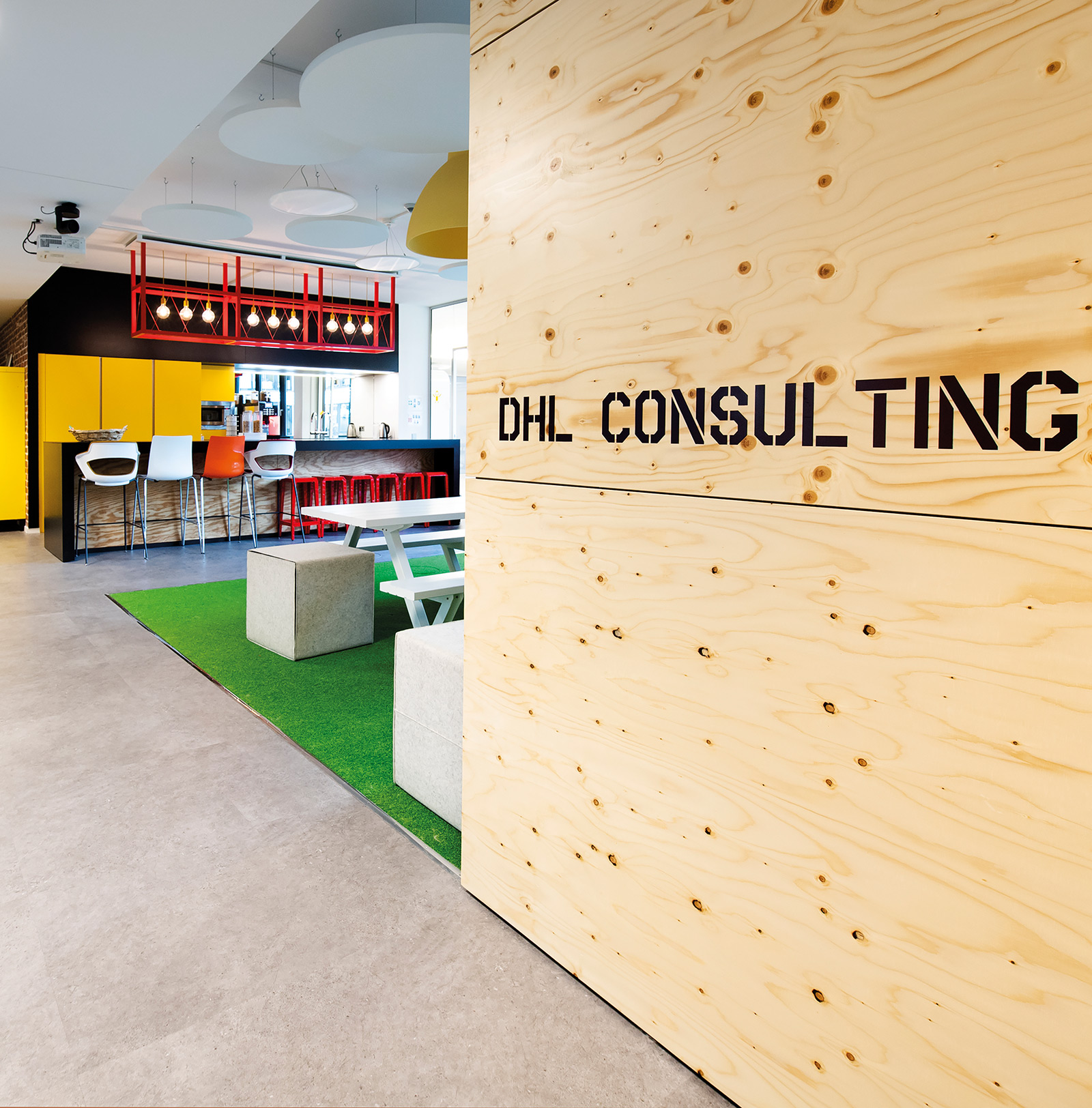
Changing Expectations
There is an understanding that white collar employees around the world should come to an office to work a nine-to-five day, five days a week. It’s a paradigm that dates back to the 1950’s model of one worker, one homebuilder families. As a framework, a growing body of research and opinion suggests that is actually no longer truly fit for purpose.
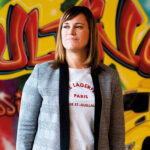
“People today are increasingly looking for better ways to harmonise work and private lives. There’s a feeling that the traditional co-working, office-based paradigm may not be the best fit for personal lifestyles,” says Koch. “There’s a growing imperative to find ways to respond to our human needs to keep ourselves happy, bonded to our friends and families, fit and active and energized by whatever makes us feel complete. And people want to be able to combine this with a job they care about.”
And this is not limited to new hires and Millennial workers. The incumbent workforce want it too.
“Feedback from existing and incoming staff dovetailed around a greater desire for flexibility, irrespective of demographic or generational differences. DHL Consulting employees of every hue expressed a universal interest in having the flexibility to attend to the demands of their personal lives without compromising their career or derailing their professional ambition.”
So the challenge to Koch and her team was to design the right policies and actions to respond to this expectation.
Creating Tomorrow Land
Between 2019 and 2020, DHL Consulting has enacted two major initiatives that have comprehensively transformed the way that people work.
The first is what Koch calls the Remote Office Policy. When this new arrangement was first introduced, it allowed every employee to work remotely for up to six days per month from any location that afforded them connectivity and privacy to remain fully productive. Since the COVID-19 pandemic began, this policy has been updated and each employee can work an unlimited number of remote days. This policy will remain the norm even after the pandemic lockdowns are eased.
Introducing this change, the team were cautious to avoid being “overly prescriptive,” says Koch.
“We stipulated that employees could work from wherever they wanted – anywhere that had good internet, and from where they could take private or confidential calls when necessary. We insisted that no one needed an excuse or specific reason to take their day because of the danger of stigmatisation. Till now, working from home has been reserved really for parents, when children are sick for instance, so we wanted to be sure that everyone felt the same benefit, regardless of their circumstances or lifestyle. For the same reason we were also keen to avoid calling it the ‘Working from Home’ policy. We were striving for equity and fair handedness across the workforce.”
For project managers used to having team members on hand, shifting to periods of remote teamwork has meant making certain transitions in terms of management, planning – and trust.
“Giving people this degree of flexibility is all about empowering those people with a higher degree of autonomy to solve their own problems and make their own decisions. But before you get there, you have to figure out who might need more help in terms of guidance and time-planning. You might need to check in during the day with certain colleagues a bit more at first. And then you need to be able to let them go for it, and that means prioritising trust.”
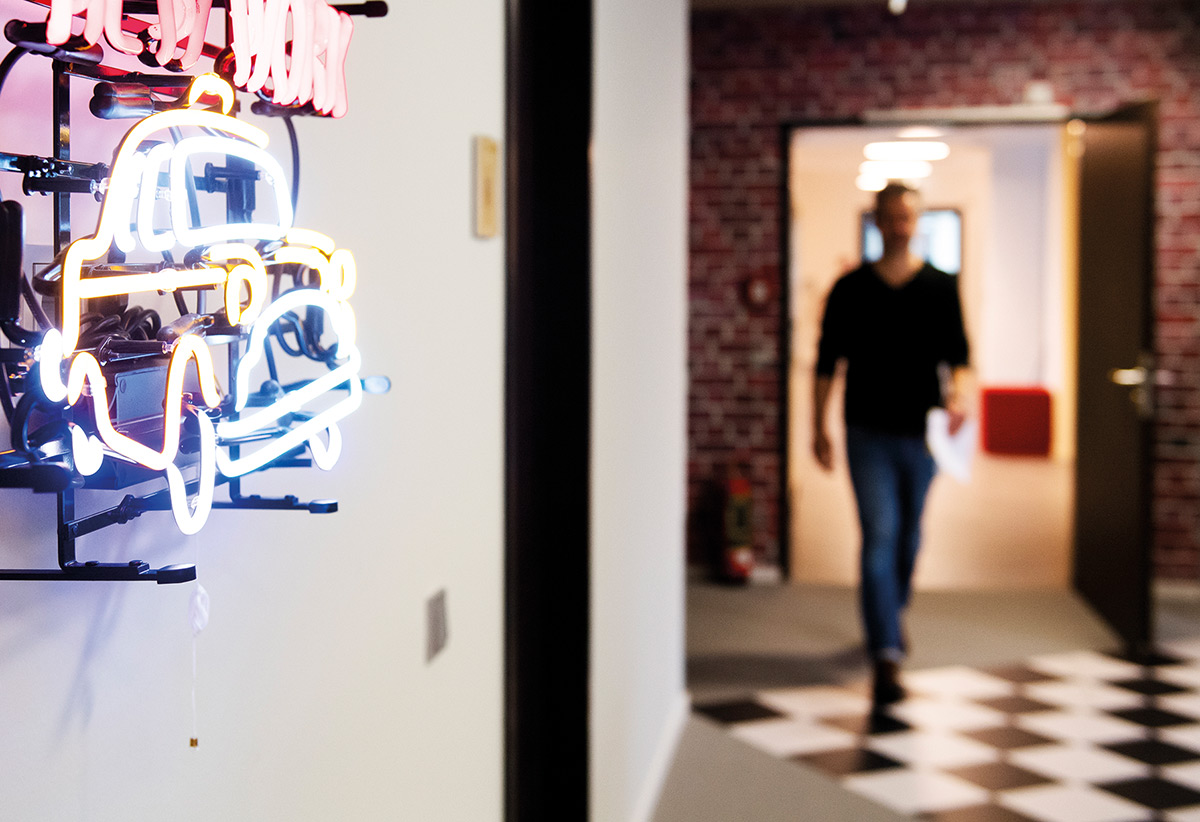
In consulting and other white collar sectors, this kind of dynamic is achievable over time because team-work tends to be deliverable-focused, she adds. Managers who communicate objectives and timelines effectively should not ultimately need to steer their team in situ; nor is there a need to constantly check if someone is working. “It’s more about how you align as a team to make sure your deliverables happen when they are meant to. And that means letting people decide for themselves how they work.”
The second key initiative was the remodelling of the HQ in Bonn.
DHL Consulting was keen to move to an “activity-based” working concept, with different areas and spaces mapping to different activities and working styles; different zones for meetings, project work and open collaboration. Before this work could start, however, the leadership team needed to better understand the needs and dynamics of the workforce.
“We created ‘personas’ looking that the different working styles and needs we have as consultants, and the different activities that have to be supported. Based on these insights, we figured out that we needed to create spaces for meetings as well as for informal collaboration; spaces for focused work and for project work. Above all we wanted to ‘flexiblise’ the office, meaning that people could come in an choose where they wanted or needed to work.”
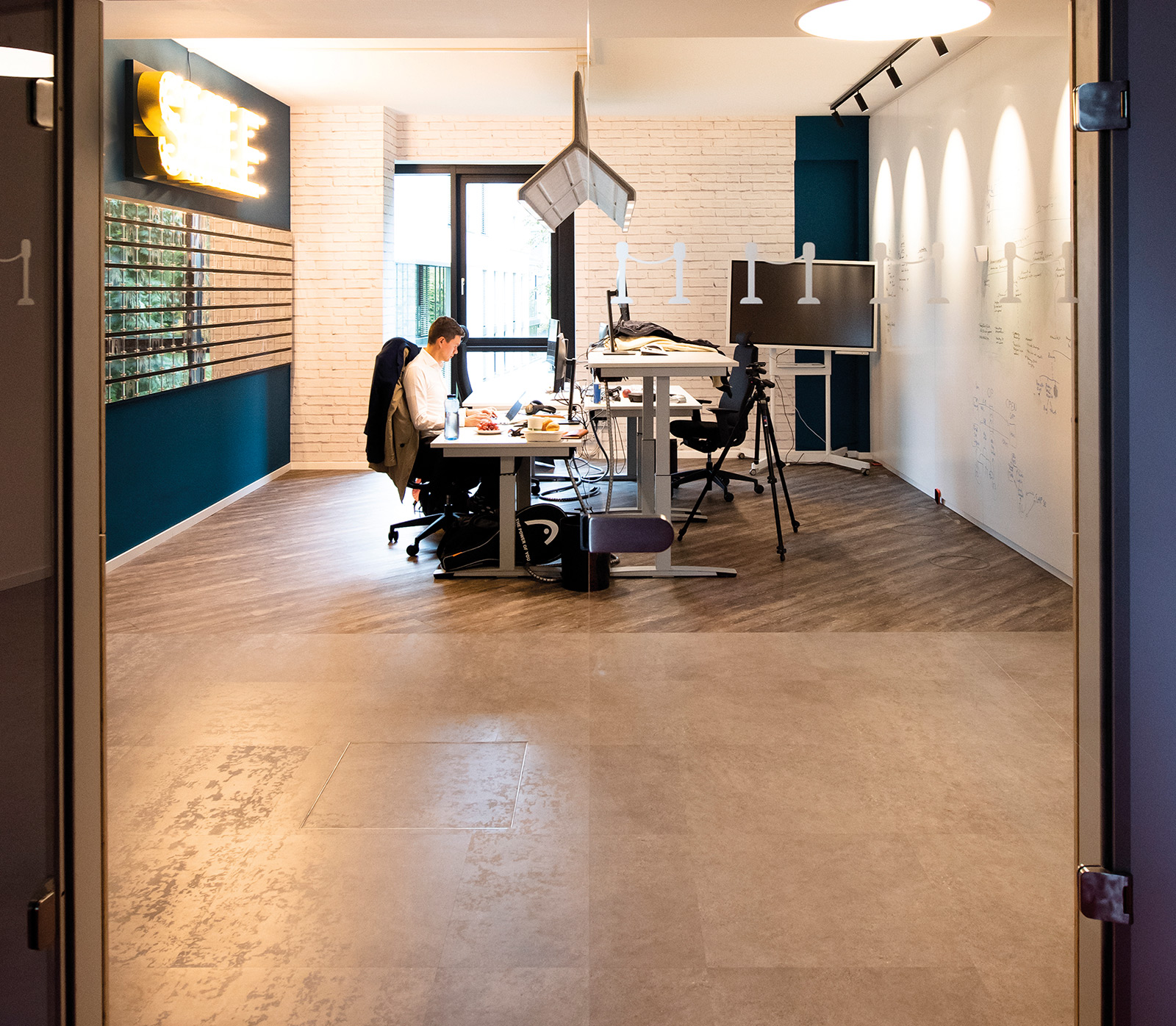
The new DHL Consulting office in Bonn has different zones based on different activities, each with its own etiquette in terms of taking calls or working silently. The effect has been a bringing down of walls, both literally and figuratively: a loosening of boundaries that has had the effect of dismantling hierarchy and silos while opening up new possibilities for cross-company collaboration. But it wasn’t all plain sailing.
Overcoming Resistance
Inviting people to change the way they do things is a big ask, even when that change is designed to enhance their wellbeing and productivity. With change comes increased effort – at least initially as people shift from one modus operandi, rulebook or environment to another. It takes time, says Koch. At least 100 days’ worth.
“You can’t expect people to adapt without friction. Even though positive change is good for the collective, for the individual it implies the additional effort of learning and acclimatising to something new. Management needs to be aware of this, and to plan for this lag. For us, that translated into a novel idea: 100 days without complaint.”
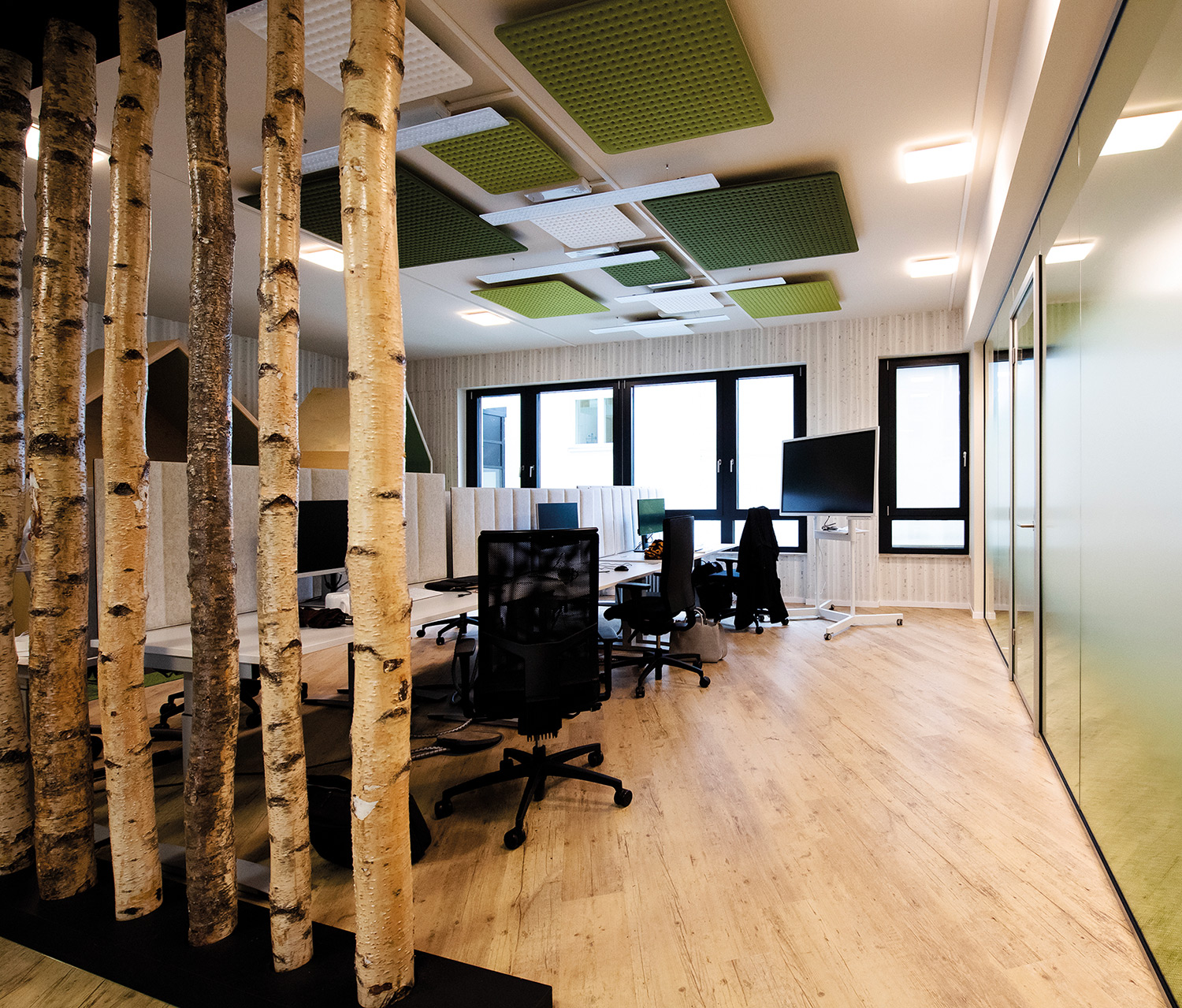
For 100 days the DHL Consulting team was asked to accept the changes and at the end of that period, to identify what didn’t work.
“We did this,” says Koch. “We changed furniture and materials that didn’t work well. But we didn’t change the essential concept of activity-based working and we didn’t reintroduce single offices because after this period of time, people had begun to understand the purpose and the benefits of the transition.”

Securing this kind of understanding early on in the process was another key learning for the management team, she adds.
“When it comes to change management, it doesn’t matter how or how much you communicate. It’s about what you share.”
If your team doesn’t understand the pain points that you are addressing by instituting change, they will find it exponentially harder to get behind that change. A key need for DHL Consulting was the need for greater space. And to leverage new space to become more digital and to work in a paperless environment. Koch acknowledges that she and her management colleagues could have done more to communicate this at the start.
“Our people saw the advantages of paperless but were not clear about the overriding rationale. They felt they were being asked to give things up – the room or office or desk that had worked perfectly well till now. We could have done more to explain to them why this was happening.”
It takes time for your people to see and feel the positives, says Koch. “So you need to stick to your decisions. If there is critical feedback at first, if you are convinced it’s the right thing to do you need to weather the storm.”
Weathering the Storm
Change has brought clear benefits to DHL Consulting. Mixing teams in open spaces means that consultants are less prone to working in silos and the flow of communication across the company’s teams – and hierarchy – is not only more robust, but more transparent. Then there are the tribes.

“As exchange happens up, down and across the company, shared knowledge and passion are building tribes based around interest. We identify these tribes, sponsor them and identify topics that can be shared across the company. We also now have the flexibility to dismantle tribes when we have learnt enough from them and the benefits have been shared. This facilitates knowledge building across the organisation and it’s worked really well.”
Braced for Covid-19
When the Coronavirus pandemic hit Europe in early 2020, the team at DHL Consulting were ready. Accustomed to working paperless and remotely, staff already had the technology, the tools and the technical support to work from home when the office was locked up in mid-March.
As the situation has unfolded, Koch and other senior managers have prioritised checking in regularly – particularly with staff whose careers they have a role in developing. “I am a personal developer with around 15 younger colleagues or mentees attached to me. During this period it’s been really important to keep the communication lines open and to check that our people have everything they need in terms of hardware, WIFI and server capabilities, and the tools that they needed to work longer from home. Another really important thing was the human aspect: just asking people how they were and how they were feeling.”
A good deal of the work that had gone into preparing personas to identify needs and activities has paid off well over this phase, helping DHL partners (all of whom work as personal developers) to spot issues, solve problems and continue to offer support to the workforce.
The Remote Office Policy already enacted within DHL Consulting meant that meant that the team was poised to support their parent company when the crisis hit, providing solutions and offering vital reassurance at a time of unprecedented uncertainty.
“Planning for the workplace of the future, investigating how digital tools can empower us to work remotely, trying new working paradigms, assessing their impact – all of this has meant that we had the agility, the experience and the confidence to respond to the crisis and to do so fast. We were ready for disruption. We simply had no idea that it would come in so many different forms,” says Koch.
Contributors
Jana Koch, DHL Consulting
